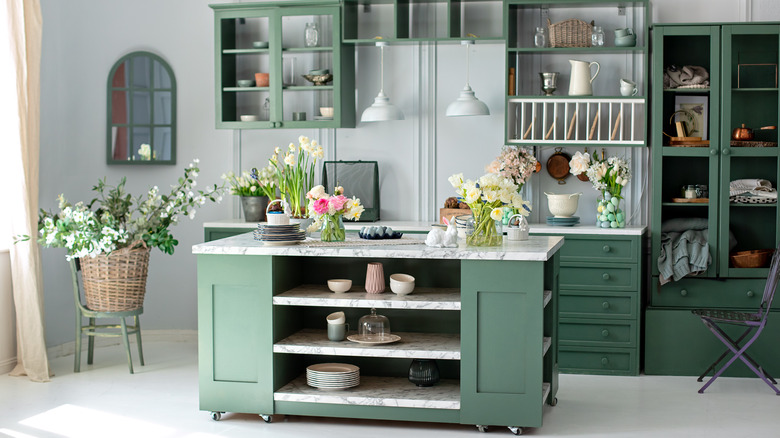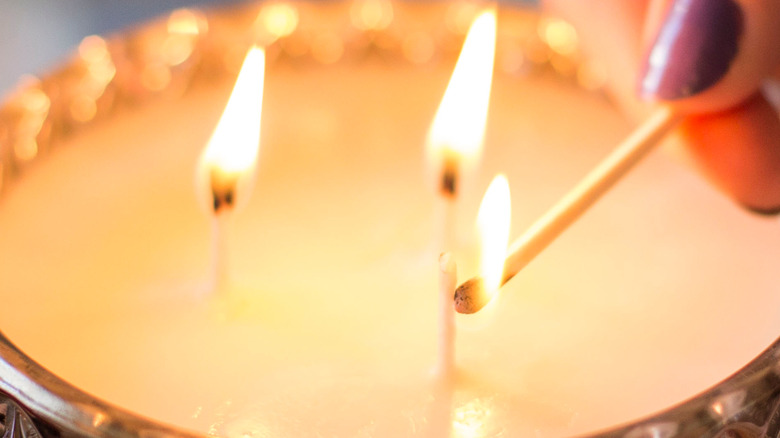The Best Candle Scents You Should Have In Your Kitchen
When the right candle burns, a kitchen evolves. A home-y, human fuel-station becomes perfect for meals, work, and relaxation. While contemporary kitchens tend to include meal-prepped creations, TikTok-ready spice collections, and fine china, fresh bread and vegetable stew wafts can complement soothing kitchen candle scents.
Both research and personal experience remind readers that good smells can contribute to a good life. Using scents for holistic health is an ancient Eastern cultural practice, after all. Also, given the reality that many consumers with WiFi and resources also love appropriate scents –- for the same reasons underlying the practice's history –- candle-buying surges makes perfect sense. As The Road to Domestication noted, positive scents can positively affect brain chemistry. The publication recommended citrus and fresh scents for the kitchen since floral and musk scents may rival meal smells or obscure scents of which the cook should be responsive and aware.
Furthermore, the National Candle Association explained that people broadly associate orange, lemon, and grapefruit with personal revitalization and energy boosts. Even so, citrus scents are not the only way to go. The outlet observed that lemongrass is associated with decreased anxiety, as well as detailed how rosemary and eucalyptus are believed to bolster productivity. Lavender is known for its self-soothing and bedtime-aiding properties.
These scents are a boon in the kitchen
Since research suggests that rosemary works as a cognitive stimulant, candles with rosemary notes can be connected with kickstarting how people think clearly about the matters of their minds. In today's moment, most of us welcome healthy options to remove brain fog, including in the kitchen. "It is scientifically proven that scented candles can play an essential role in the physiological effects of mood, stress, working capacity, and overall mental health," Chryssa Chalkia, an accredited psychotherapist and cognitive behavioral therapist, told Travel & Leisure.
Admittedly, today's consumers also value cultural history and context, and knowing about smell-good-feel-good links may inspire the perfect selection. As referenced earlier, Indian and Egyptian societies used holistic scent practices for eons before European cultural exploration. Even so, a French perfumer and chemist created the term many now use to cover the healing usage of chosen scents. René-Maurice Gattefossé coined the term "aromatherapy" in a 1937 book. Contemporary aromatherapy practices include candle-burning, diffusing essential oils, spraying aromatic spritzers, and more. To that end, citrus, rosemary, and other fresh scents are perfect for the candles in your kitchen.

